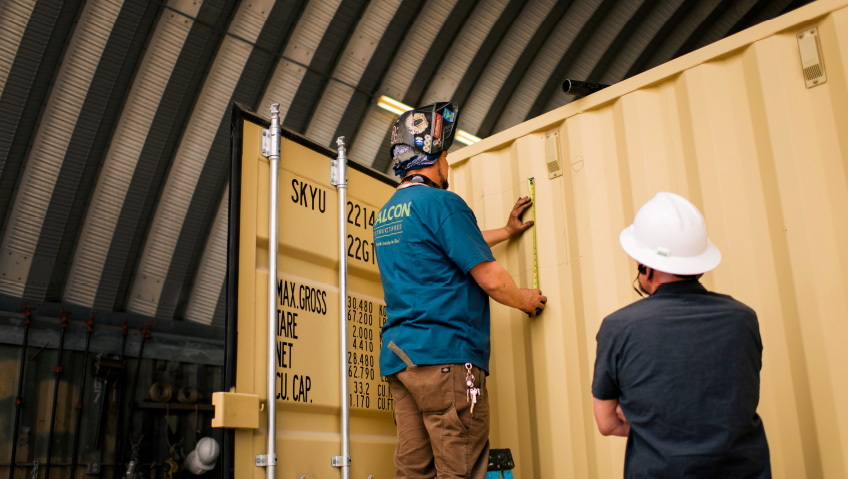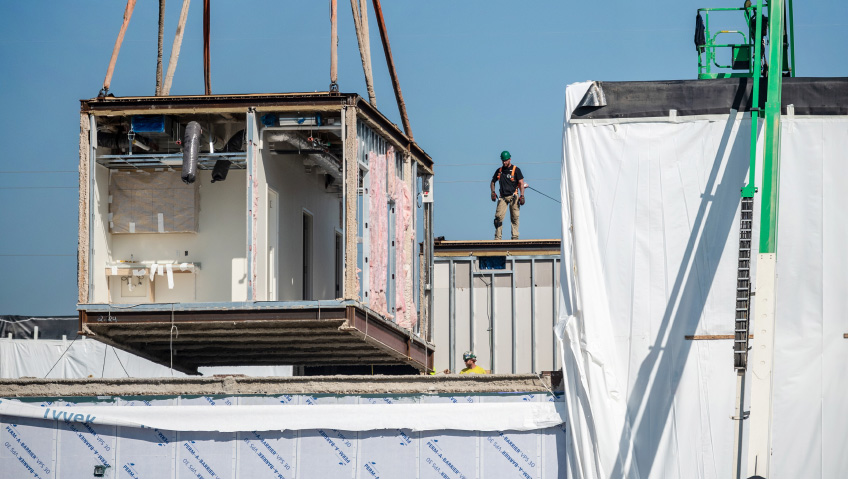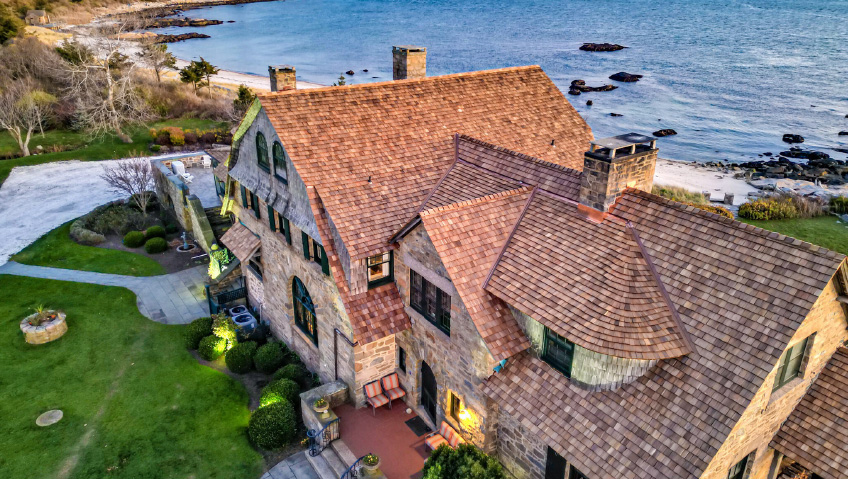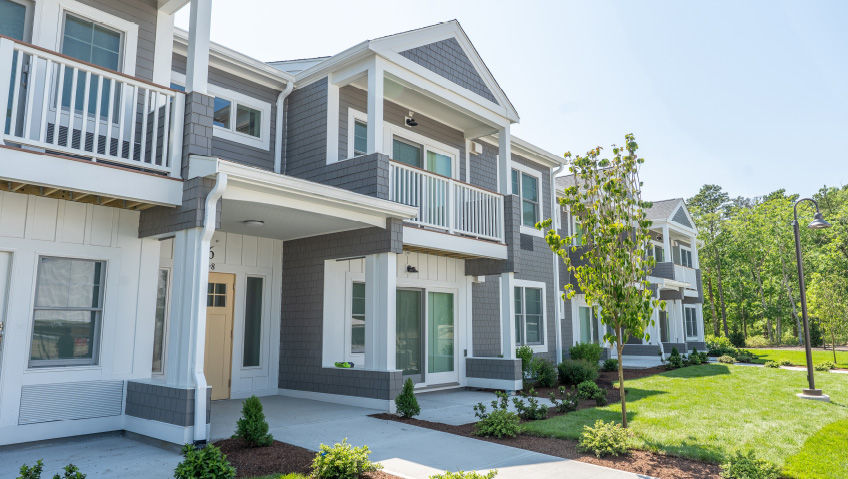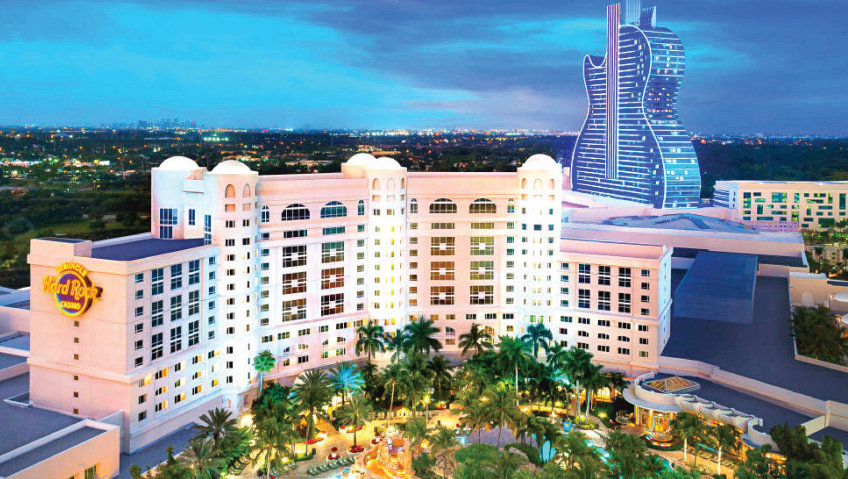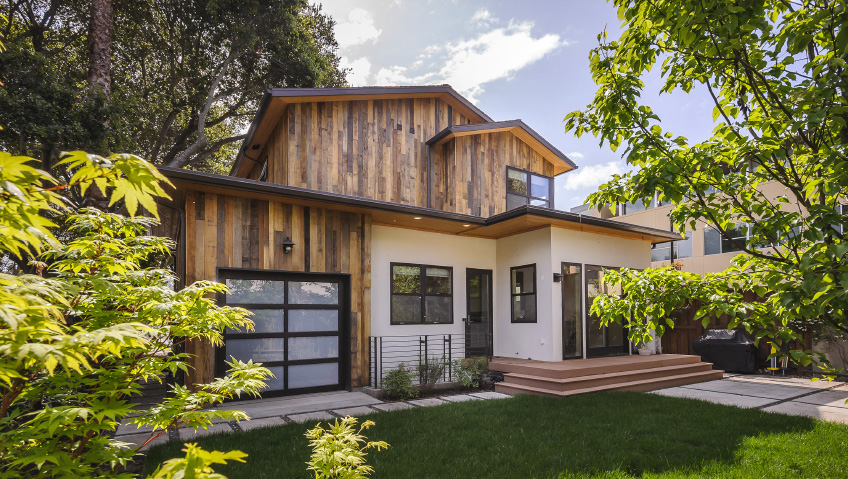Meeting as engineering students at the University of Texas at Austin, Stephen Shang and Brian Dieringer found success in their own careers upon graduation. Reconnecting years later, the duo became co-founders of Texas-based Falcon Structures, which repurposes steel shipping containers into modular work, living, and storage spaces.
Starting off small, the business continues to build on its staff and its workspace. With a team of around 90 today, the company serves diverse markets including construction companies, major energy corporations, government entities, sports organizations, and others, all while living up to its motto: Think Inside the Box®.
At the time Shang and Dieringer began Falcon Structures, shipping containers were, well… shipping containers. Steel boxes of varying lengths and dimensions—20 feet or 40 feet long, for instance—these containers are purpose-made to be loaded onto ships, trains, and trucks. Containers are made to hold many thousands of pounds of goods, and are an efficient means of transportation worldwide. For decades, however, they would arrive full from overseas, be emptied, and then sit to rust.
In the late 1980s, one innovator patented making modified shipping containers into homes. Dieringer and Shang knew that these sturdy boxes could be used for much more, including workplaces, storage, industrial enclosures, first responder and military applications, and more, which led to the birth of Falcon Structures in 2003. “It’s cool that we’ve been able to make it for 20 years,” says Shang of the business, which will celebrate its 20th anniversary in November with present and former staff, suppliers, customers, and others who’ve played a role in Falcon’s longevity.
An industry leader, Falcon Structures was the first in-house container structure manufacturer to receive building code acceptance criteria approval (ESR 4163). At the time of acceptance, the International Code Council (ICC) wrote: “The growing market demand for alternative building materials and techniques has led to a pressing need by the construction industry for new sources for materials. The global container homes market alone, as reported by Allied Market Research, is expected to reach over $73 billion by 2025. Off-site and modular construction overall has become an increasingly important new area for the industry.”
Although most of Falcon’s customers are in the United States, the company has delivered structures to Canada, Africa, and other locations worldwide. Compared to traditional construction methods necessitating bricklayers, carpenters, and other trades, along with materials and uncertainty over deliveries and weather, the advantages of shipping containers speak for themselves. Since they are factory-built, many of the variables that come with building on site are removed.
“We are building in a controlled environment, not in the middle of nowhere trying to find a Home Depot to get a missing part,” states Shang. “There’s a lot less waste and a lower carbon footprint. Building these structures is much more sustainable. Since they are shipping containers, they can literally be shipped anywhere in the world. There is an entire transportation system built around them.”
For the past seven years, Shang has served as Chair of the Government Affairs Committee with the Modular Building Institute (MBI), one of the Institute’s most influential committees. Founded in 1983, the MBI is known worldwide as a respected not-for-profit trade association serving the modular construction sector. And as Vice President-elect, Shang is on his way to becoming President in a few years. “It’s a great organization, and I think the world of it. It has been a good place to invest my time,” he tells us.
Falcon’s pre-designed floor plans meet the need for storage space, workspace, and living space, all customizable using Falcon’s modification library. Along with pre-designed shipping container solutions, the company also takes on more custom projects at scale. This includes protective equipment enclosures for generators used to mine Bitcoin, urban farms growing acres of basil within a container, and container-based food and entertainment parks. “That part of the business has really grown quite a bit in the past few years, as we’ve seen more and more applications for these containers come into play,” says Shang.
“One of the things that’s cool about containers versus traditional modular is that stacking them is no sweat. Engineering-wise, that’s what they were built to do.” In fact, they can be stacked nine-high. An empty shipping container weighs about 9,000 pounds and can be loaded with 50,000 pounds inside.
Deemed essential during the COVID crisis, Falcon Structures continued to work steadily. Even still, Shang and his team were faced with challenges, yet made it through without laying off a single staff member. “We didn’t think it was the right thing to do,” explains Shang. “I gathered my leadership team, and said, ‘Guys, this is probably going to be unprecedented, because one: we don’t know how bad it’s going to get, and two: we don’t know how long it’s going to last. So how do we weather this storm?’ That really was the rallying cry of Falcon: how do we make it through as a team, and stick together as a team? Looking back, that was the right decision, but it could have easily destroyed us as well.”
With years of business experience under their collective belt, Shang and Dieringer decided to stock up on as many shipping containers as possible. This forward thinking ensured the company had ample supply. Others weren’t as fortunate during the pandemic, when it was almost impossible to obtain containers because of major supply chain issues worldwide.
“There were folks in our industry who couldn’t get their hands on containers,” says Shang, “and when they could, the price of containers went up two or two and a half times; it was crazy.” Although prices eventually came down and supply increased, he says it felt as though there were so many ships backed up and waiting to unload during COVID that if you wanted to go to Hawaii, all you had to do was drive down to Long Beach, California and walk out into the shipping channel.
With need growing during the pandemic, Falcon Structures expanded, doubling its footprint. In fact, the need for Falcon’s container structures is at an all-time high. Attributing it to pent-up demand, Shang says that based on the broad array served by the company, it was “the biggest recession that never happened.” Segments of Falcon’s 50-acre site in Austin, Texas, are being dedicated to different phases for development. This not only allows the company to have more breathing room, but better control over inventory and staging. “When you’re cramped into a tiny space, you can’t really get productive,” says Shang, “so it really freed up a lot of space. And we’ve seen our financial performance and our throughput improve as well.”
A made-in-America success story, Falcon Structures has doubled its pre-COVID annual revenue from 2018/2019. And while this is important and creates more opportunities for employees, it is no longer the central focus of the business. After plenty of soul searching over the past three years, Shang says his actual goal is to bring Falcon Structures’ products to the world and help it flourish.
“Part of our mission statement is ‘build a better world,’ but the other part is, we want to give employees a place where they can creatively express themselves and do good work,” says Shang. “So those two aspects are what we are really striving for right now, and that’s what we’ll keep striving at for a long time. Revenue was a younger man’s kind of dream.”
Although the shipping container structures created by the company start off similarly, the same cannot be said for Falcon employees. Working on steel containers is unique—trade schools teaching shipping container modification don’t exist, at least not yet.
Some of the company’s 90 staff come from existing construction trades, where they became frustrated by being sent to different job sites. Others were looking to enter the fast-paced world of steel container manufacturing. Shang says his ideal employee is someone who perhaps grew up on a farm, knows how to do many things, and has common sense about the way things work. “When we get our hands on someone like that, we can teach them all the other trade skills they need,” he says. “It’s not like you’re going to go out and find someone who’s built container-type structures before.”
Unlike other companies, Falcon has never set out to be ‘diverse,’ since it has always welcomed women and minorities from day one. “We are very much a meritocracy, and hire the best person for the job,” comments Shang. “Many of our frontline workers are Hispanic and minorities, and women are well represented in the office team; that’s just the way the company evolved. I’ve always believed we hire people who are different because that’s how we build a team—we don’t want everyone to be the same. The culture of Falcon is just naturally diverse,” he says.
“If I look at the future of Falcon, the dominating theme is that as the company grows, its strong culture will stay intact; if anything, it will get deeper. And people who choose to come here and work here have a rewarding career doing great work. They know they are making a difference in the world. And we want to do more of that.”

